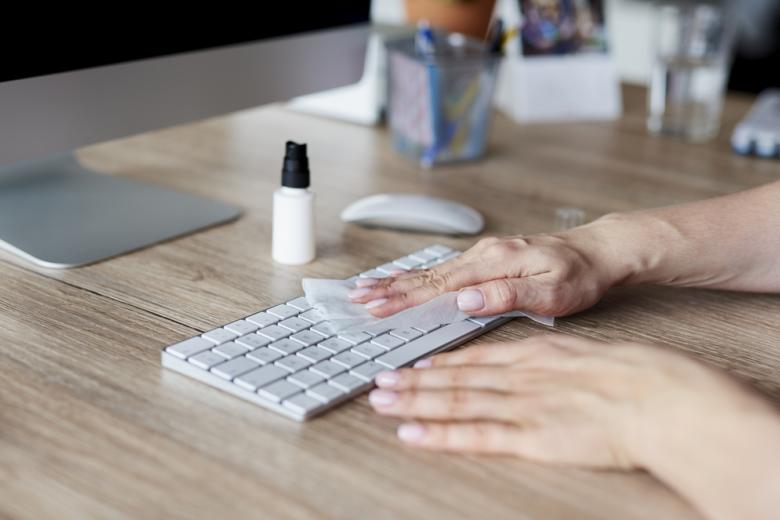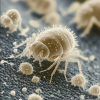- Home
- Our Services
- About Us
- Contact
- Work for us
- Blog
- Gutter Cleaning
- Gutter Cleaning Appley Bridge
- Gutter Cleaning Aughton
- Gutter Cleaning Burscough
- Gutter Cleaning Clitheroe
- Gutter Cleaning Halsall
- Gutter Cleaning Lancashire
- Gutter Cleaning Leyland
- Gutter Cleaning Maghull
- Gutter Cleaning Ormskirk
- Gutter Cleaning Parbold
- Gutter Cleaning Skelmersdale
- Gutter Cleaning Standish
- Gutter Cleaning Up Holland
- Gutter Cleaning in Scarisbrick
Your shopping cart is empty.
4 Disinfectant Spray Tips to Help Stop the Spread of Covid 19
While there is still much to learn about the Covid 19 virus, one thing we know for sure is that we can all take steps to reduce its spread.
Experts believe that Covid 19 is usually spread from one person to another through respiratory droplets. When these droplets land on surfaces, those surfaces can become points of transmission.
Routine cleaning and sanitising efforts are an important way we can help reduce the spread of this destructive virus. While the concept of disinfecting surfaces may seem straightforward, there are some useful tips that will help you make sure you are doing your part in the fight against Covid 19. The four disinfectant spray tips below will help you make sure your space is sanitary and safe for you and your loved ones.
- Clean Surfaces and Objects Before You Disinfect Them
Some people assume that disinfecting spray or a disinfecting wipe alone are enough to sterilize a surface or use hand sanitizer and kill any traces of the Covid 19 virus. Unfortunately, disinfectant alone is often ineffective.
By first cleaning a surface with a soap or detergent, you remove the dirt and small bits of organic matter that can form a barrier between the surface and the disinfectant. Not only that, some pieces of organic matter can actually inactivate many types of commercial disinfectant spray.
If you are cleaning interior surfaces, such as a bathroom or a kitchen counter, you can use a simple mixture of warm water and soap to clear the surface of debris. After the area has been properly cleaned, y ou can then use a disinfectant to kill any germs that may be present on the surface.
You will want to choose a disinfecting spray that has an alcohol concentration of at least 70% to ensure that it is capable of eliminating the virus. If you opt for a chlorine bleach as your disinfectant, you should choose one that has at least a concentration of 1000 parts per million.
To disinfect outdoor spaces, you can use a pressure washer to first remove dirt and debris from the surface. Again, this will ensure that your chosen disinfectant spray can actually sanitize the surface.
- Pay Extra Attention to High Touch Areas
You should always focus your efforts on surfaces that are the most likely to be touched by people. As mentioned above, Covid 19 tends to spread through respiratory droplets, which means you are far more likely to come in contact with the virus in areas that see higher numbers of people.
By making sure that high traffic areas and regularly touched surfaces are sanitized with disinfectant frequently, you reduce the opportunity for the virus to spread. While it is true that every space is different, there are some bacteria-prone surfaces you can usually count on being high touch areas. Light switches, doorknobs, computer keyboards, refrigerator handles, toilets, bathroom fixtures, and kitchen countertops are all touched often throughout a typical day.
Outdoor spaces can also have higher traffic areas and more regularly touched objects. Think about turnstiles, benches, gate handles, handrails, and any other surface that people regularly touch in public spaces.
You can still use the same cleaning and disinfectant routine with these surfaces, but you may want to increase the frequency it is done. Where a meeting room that is rarely used might be cleaned every other day, a high-traffic office lunchroom might need to be cleaned and disinfected on an hourly basis.
- Make Sure You Are Using the Disinfectant Spray Properly
In order to make sure any disinfectant spray you use is actually going to eliminate the Covid 19 virus from a surface, you must make sure you are using it properly.
Unfortunately, many people use disinfectant sprays incorrectly, which gives them a false sense of security. The truth is, a quick wipe, or light misting will very rarely kill the virus. It can actually be quite dangerous if someone thinks a surface has been disinfected when it has not.
The best place to start is reading the manufacturer’s instructions, or visiting their company’s website. However, there are some general rules you can follow to make sure any disinfecting spray you use is actually effective.
As mentioned above, you will first want to wipe and clean the surface. To do so, you can use a detergent, soap, or an all-purpose cleaner. The goal here is to make sure the surface is free of dirt, debris, grease, and organic material that might prevent the disinfectant from making contact with the actual surface.
The next step is to apply the disinfectant spray to the surface. Make sure you let the disinfectant stay on the surface for at least 10 minutes. Some people spray a surface and then almost immediately remove the disinfectant. This does not give it enough time to penetrate into the surface and actually kill the virus and other germs.
It is also important that you are using disposable cloths, or paper towel to ensure an even spread of the disinfectant. If disposable cloths are not an option, at the very least you should use one that has been washed beforehand. Ideally, a new cloth or paper towel will be used for each surface, as this will prevent cross contamination.
Again, make sure you know that the disinfectant spray you have chosen is actually capable of killing Covid 19. In general, check the label for any of the following:
- 70% alcohol or more
- Benzalkonium Chloride
- Hydrogen Peroxide
- Bleach (Sodium Hypochlorite)
- Broad Spectrum Anti-Viral
- Safety Should Always Be a Priority
Make sure you are using the appropriate personal protective equipment when you clean and disinfect. Remember, if you are cleaning a surface, it is because there is a chance it could be contaminated.
You should always wear disposable gloves and ideally an apron. Even when you wear gloves, you should always thoroughly wash your hands with soap and water for at least 20 seconds after all PPE has been removed.
Completely avoid touching your face. Not only is there a risk of Covid 19 exposure when you touch your face, many disinfectant sprays can damage your eyes and soft tissue. If you are spraying high volumes of disinfectant spray, you should be wearing appropriate goggles.
Dont Miss Out
Subscribe to our Soap Box now for our BEST updates, home cleaning tips and hacks





















